Amy Dragon Telegraph Mastering & Margaret Luthar Chicago Mastering | Mastering Engineers
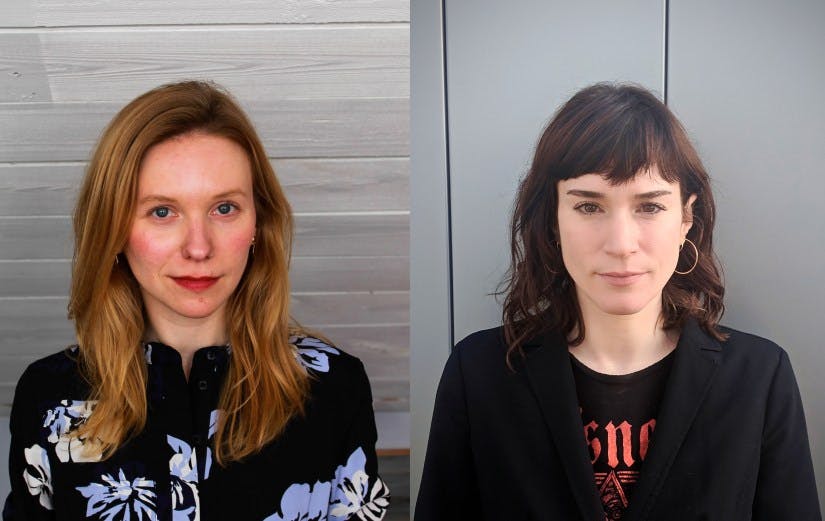
I love that that Amy and Margaret wanted to do this together, even though both definitely deserve their own posts. I have so much respect for these ladies,and what they do.
Margaret: I’m a Mastering Engineer at Chicago Mastering Service; we do mastering for digital formats as well as mastering for vinyl. On the side, I’m also a freelance recording engineer, specializing mainly in classical and jazz acoustic projects.
Margaret also enjoys running (like a real runner, check out her Instagram and you’ll see what I mean). “I love running, the social aspect…runners are all great people and they come from all backgrounds so it’s a very unifying sport. I’m not the world’s fastest runner, but I am surprised about how natural it is for me.” She also loves history, cooking, whiskey, and travel. She lived in Norway for nearly 6 years “…so I’ve seen a lot of Europe. My next goal is South America!”
Amy: I’m a mastering engineer at Telegraph Mastering in Portland OR. Mastering is basically the art & science of completing an audio project; making it sound professional and preparing it for distribution. I do audio mastering for digital and vinyl, reissues, restoration, layback, transfers, and full format audio editing services.
Amy calls herself a typical Portlander (which to me isn’t a bad thing). “When I’m not in the studio, I run around town chasing bands I love, DJ-ing my records, trying to keep up with whatever new awesome restaurant or bar has just opened, being cranky about traffic, heading out into the great wild beauty of the Pacific NW, and obsessing about my dog Mister Pibbs. Oh, and I love the rain.”
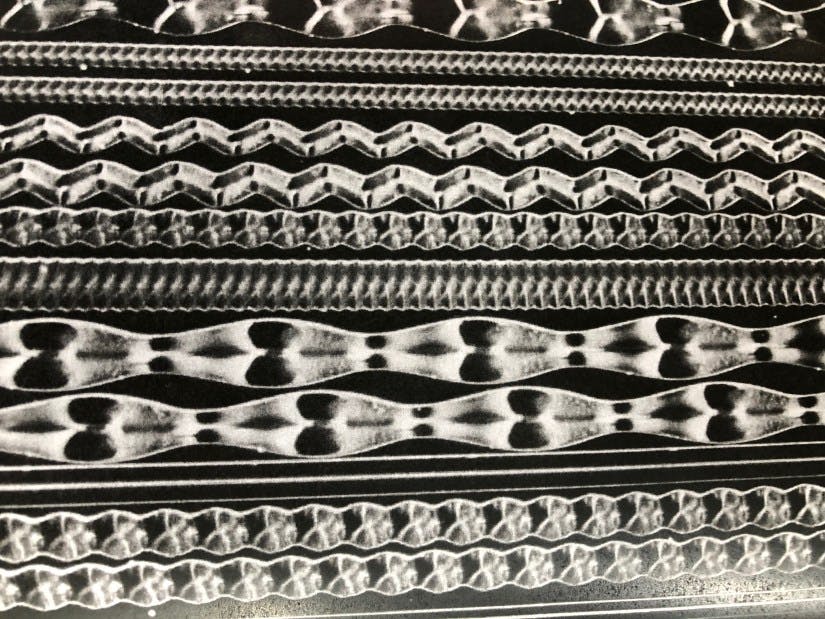
How did you get into your industry / What motivated you?
Amy: I took a traditional apprenticeship route into this field by way of a studio assistantship. I had no formal audio engineering experience prior, but had spent 12 years in classical piano training moving on to orchestral percussion before leaving performance behind. It turned out that my early foundation in music theory coupled with a voracious interest in all genres of music gave me a terrific foundation for mastering. Starting in 2013, under the guidance of my mentor (Adam Gonsalves), I spent countless hours in studio observing & practicing, reading college audio textbooks, visiting other studios and pressing plants, eventually working as a manager at a local pressing plant (Cascade) while learning to cut lacquers and hone my mastering skills.
Margaret: I was a B.Music Industry student at Syracuse University, which transitioned into a Master’s degree in Music Tech from NYU. Both were quite formative in my path coming from a highly trained classical background was useful from a critical listening perspective. The ability to read scores and have a critical ear was beneficial for mic placement. There was also a highly technical component to my Master’s degree which satisfied the more logical side of my brain. I don’t want to say I fell into all this, but in a way I did. I found my niche, and it’s great. I think the best part of mastering audio is being exposed to lots of different projects and genres of music. I love all kinds of music, from Top 40s pop to punk to classical music, so it’s nice to be able to experience all those genres on a regular basis.
What is a day in the life like?
Margaret: It depends! Some days I’m working on album projects destined for both vinyl and digital formats, sometimes projects destined for either but not both, sometimes QC-ing other engineers’ projects, sometimes the mastering projects come in on tape so I’m calibrating a tape machine, sometimes “flat-cuts” (this is a project where we are transferring – cutting – already mastered material onto lacquers for pressing purposes) for labels…it really depends.
Amy: Maggie said it perfectly. It’s really runs the gamut depending on what the customer’s final distribution format goals are.
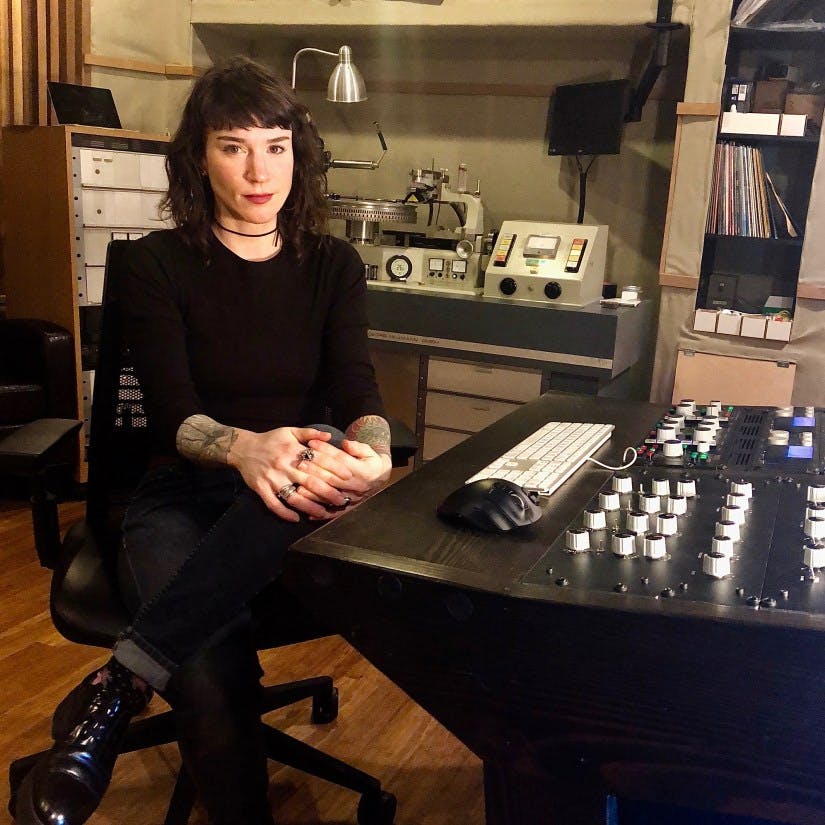
What has been your favorite / the coolest thing you’ve worked on?
Amy: My favorite projects are generally the “soup to nuts” vinyl projects that come in as a raw mix and I get to master the audio then cut that project on a lacquer for vinyl. Full mastering projects I loved were: Myke Bogan’s “Joe Fontana”, Cruel Diagonals “Disambiguation”, and Table Sugar “Collected Acknowledgements”. I also got to engineer lacquer cuts for bands that I’m a fan-girl of: Lithics “Photographs of You/ Lost Signal”, American Aquarium “Things Change”, Jenny Don’t and the Spurs “Call of the Road” and Tragedy “Fury”.
Margaret: Oooh. Honestly, there have been a lot of projects I’ve been happy about. I’ve only been cutting for a little over a year now, so I’m still amazed about the process of getting audio onto a lacquer. So I’d say most projects destined for vinyl are fun for me. I’ve enjoyed a lot of the “flat-cuts” of I’ve done for Merge, Fat Possum, and the other labels from which we get those projects. I’m most proud of the Soccer Mommy record, “Clean,” I worked on last year. Sophie has done well for herself and I’m glad that album is getting the press it deserves.
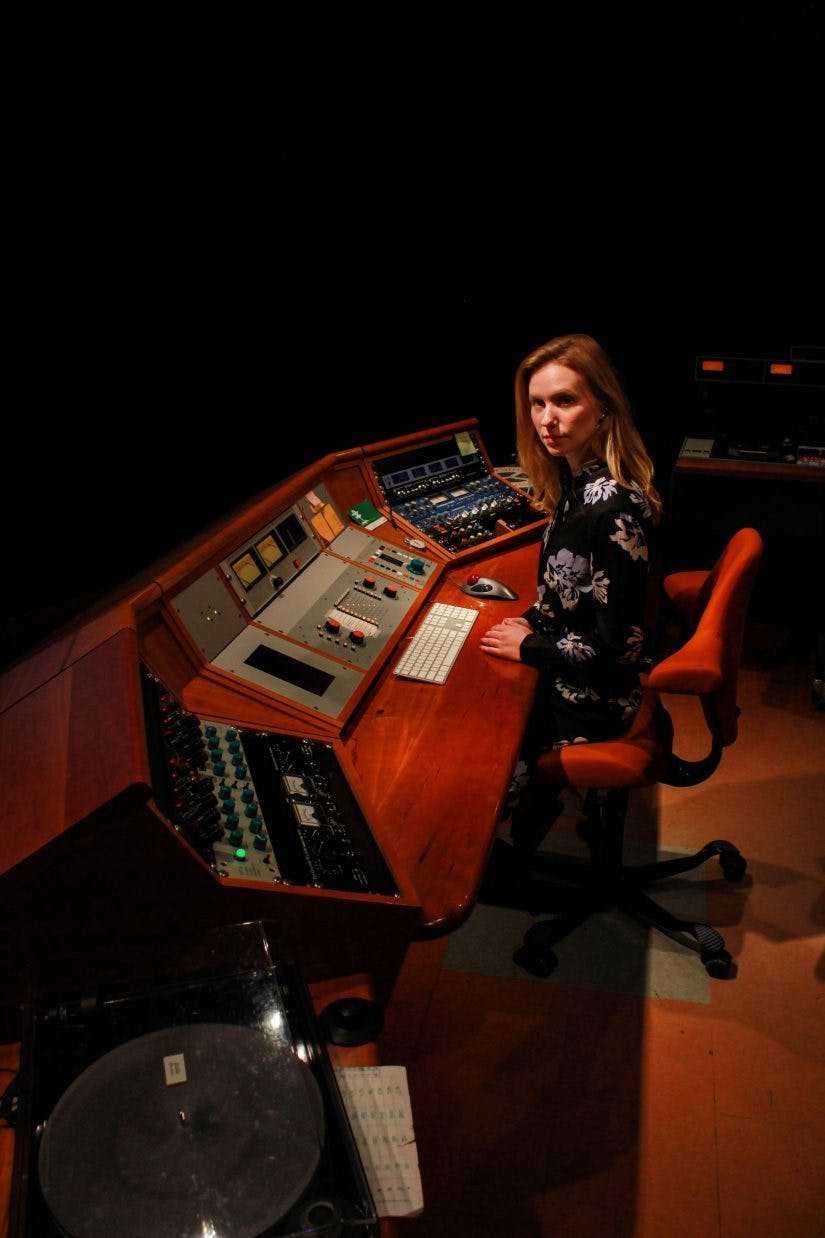
What has been / is the most difficult part of your job?
Margaret: Managing expectations for vinyl – there are a lot of ideas of what is possible when getting audio onto a disc, but I can understand how vinyl is often a very “mysterious” thing for people! I have a bunch of stickies on my Mac with emails that have been successful for this so I reference those often and it’s been getting easier at least on my end of things.
Amy: The apprenticeship while exhilarating, was stressful as hell. Learning a technical job that is as vast as mastering at the ripe old age of 36 was fucking hard. But difficult in the way that is motivating and memorable. I’d trade the decision to go into this line of work for nothing and the hard work was 100%+ worth it.
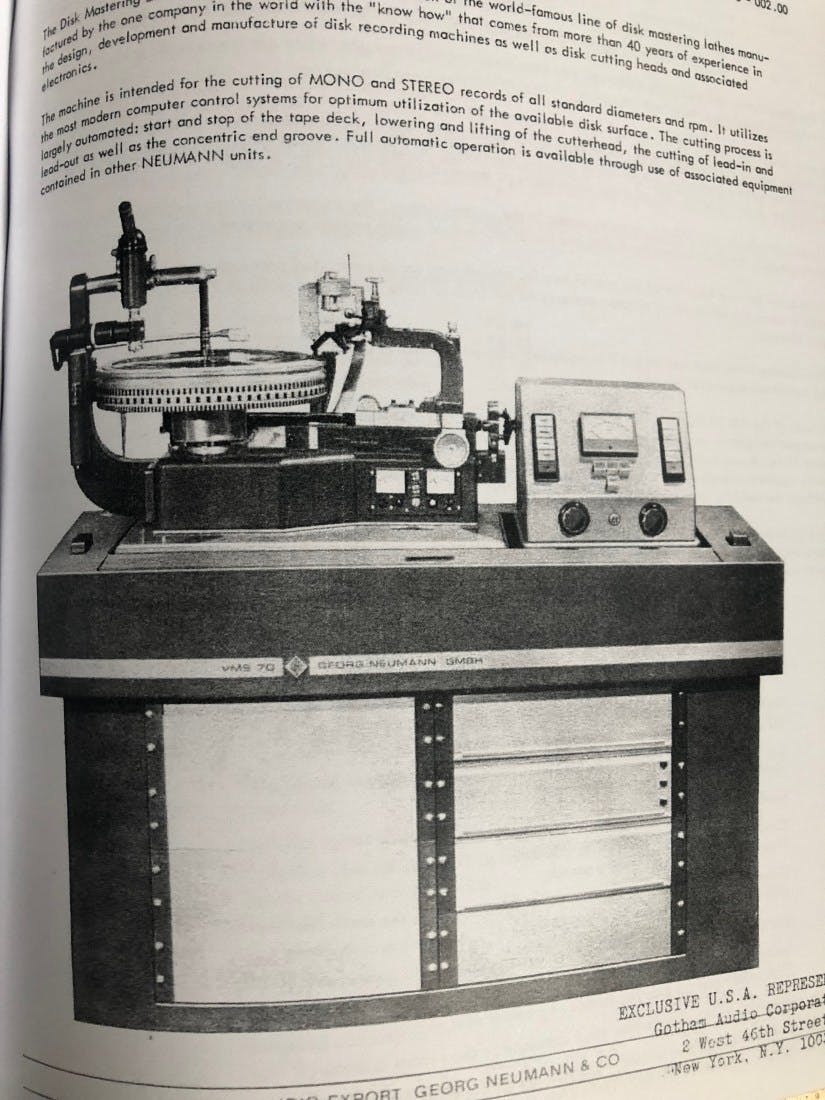
What advice do you have for someone wanting to get into pursuing what you’re doing?
Margaret: I’d say be prepared for anything. It’s great to have one thing you’re interested in (and it’s important to find your niche), but be prepared for your career to vary wildly before settling. The audio world, similarly with film or anything in the creative arts can be volatile, and you have to be adaptive to change. Don’t put your whole life on one place or path. I’d suggest everyone finds a way to live abroad, not just as a student, but as an adult.. You’ll learn a lot about yourself, and it’ll make you fiercely independent. Nothing like learning how to read a tax return in a foreign language! And know what makes you, you. At the end of the day, most people can be trained for jobs…but you can’t put a price on self-awareness or experiences.
Amy: Go for it but get quality training. Like Maggie said, there’s loads of paths in the audio engineering industry. Take ‘em if they are offered; ask for them if they are not, but be ready to hustle. Put yourself in front of quality engineers to learn as much as you can, go take college courses, find a studio or engineer that needs help, but make sure you are taking the time to train your ear for mastering. Quality mastering is really all about the engineer (your judgement, taste and ear training), the room (free from audio reflections to ensure you are correctly editing a frequency that needs it and not just responding to an acoustic anomaly in your room), and your equipment (nothing overly colored).
Are you a vinyl collector yourself? What drew you to it?
Margaret: I am, but only recently! I spent the entirety of the last decade traveling and living in many different places and for me the goal was always to “move light.” So while I have a few records I’ve collected along the way, it’s only been recently that I’ve started making it more a hobby. My dad has a record player (one of those consoles from the 60s), and he has a ton of big band music from the 40s-50s, some first pressings. I hope one day to inherit all that.
Amy: My vinyl collecting is a beautiful problem. I think what drew me to it was being broke and CD’s costing a lot. Inheriting & collecting people’s ditched record collections made acquisition easy and cheap at the time. Bands shows I was attending were selling 7”s and even 12” for way cheaper than CD’s and it’s just what I could afford if I wanted to own music. Eventually you end up with a decent vinyl playback system and a big ass collection; it all just suddenly is an integral way of consuming music and an investment worth continuing to pay into.
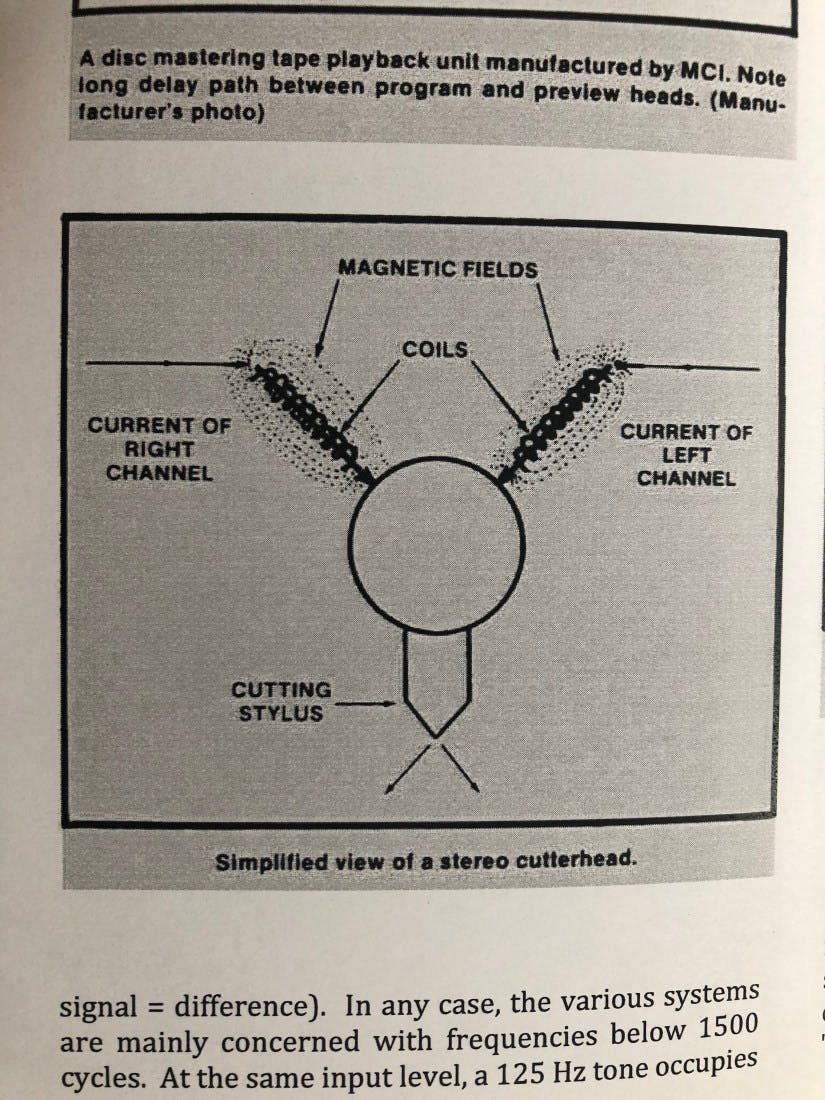
What types of things are happening in your industry / with vinyl that you’re excited or worried about? i.e. innovation, or trends you’re seeing.
Amy: I’m curious and skeptical of the internet and cloud based mastering services in general, but also how that will translate to vinyl quality. I haven’t been aware of any automated masters that I’ve cut flat to vinyl, but wonder how that will affect the overall quality of records or worse force me to have to grapple with the AI mastered audio more in order to get a truly good sounding cut. It seems like these services have a long way to go to compete with the quality of mastering that an human engineer can provide. I don’t doubt the AI will improve over time, but for now, vinyl is such a labor of love and effort by so many individuals involved in getting the audio prepped and cut, electroforming facilities getting clean stampers prepped for pressing plants, all of the set up and testing in manufacturing the vinyl and assembling it- that I just hope that artist continue to value starting with the best possible audio for all that goes into getting a quality record into the world.
Margaret: Again, I’m still pretty new to the inner workings of the vinyl world. But, it’s interesting to me how everything goes in cycles; when I was in college, everyone listened to MP3s and the physical medium was not as elevated. Over the last few years, there’s been a backlash against the loudness wars, and a physical copy of something is revered again. I suppose vinyl never went away entirely during the early 2000s but the resurgence is nice to see – people value music and artists again, which I think is something very positive.
Tell me more about what you’re listening to right now?
Margaret: I know “indie rock” is a pretty wide genre, but I’d say currently on rotation I’m listening to a lot of female fronted indie stuff: Snail Mail, Japanese Breakfast, Let’s Eat Grandma, etc. I always seem to come back to the classics too; Joni Mitchell is my favorite singer-songwriter, so when I’m feeling moody I usually listen to her. I love music from the 60s-70s in general so if I wanna jam there’s Cream on my playlist or some Kinks. From my time in Norway, y’all should check out Sløtface, Dagny, Fay Wildhaugen, and Sassy Kraimspri, just off the top of my head. There’s also a pretty strong free/experimental jazz scene on the west coast of Norway (I lived in Stavanger), so Stavanger’s Kitchen Orchestra is a great place to start for that.
Amy: Silent Season is an amazing label in BC and puts out really really well curated electronic music that I’ve been spending time collecting the past few years. Like Maggie, I’ve been diggin on a bunch of female voices lately: Mitski, Wild Powwers (which I got to master for vinyl), Lithics, Blackwater Holy Light, Frankie Simone. The new track by Blimes Brixton & Gifted Gab “Come Correct” is fucking killing me. Really, the hip hop scene in the PacNW is slaying right now (EYRST, Crane City Music, WYNN). So damn good.
Find Amy:
Instagram: @telegraphdragon
Twitter: @telegraphdragon
Website:www.telegraphmastering.com
Find Margaret:
We hope you enjoyed this content! If so inclined please donate so we can continue bringing you more like this. There is no amount too small.

